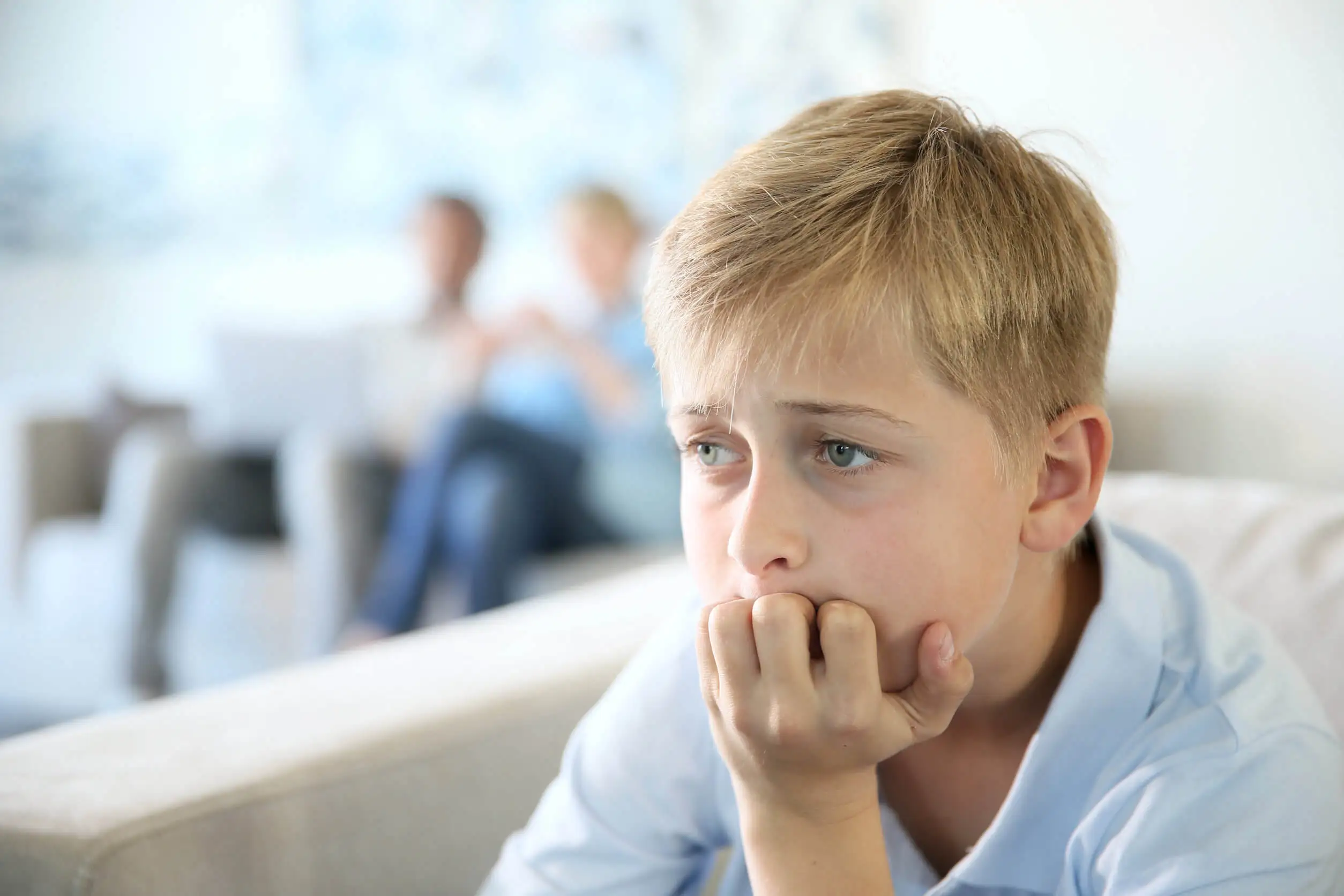What Is Parentification and What Are The Consequences?


Written and verified by the psychologist Maria Fatima Seppi Vinuales
“She acts like a mother. He’s really like a father to his siblings.” These phrases, which may sound like a compliment, are often indications of parentified children: children who find themselves carrying out tasks that have little to do with their age. When this occurs regularly as part of the family dynamics, this is a phenomenon called parentification.
Parentification refers to the reversal of roles. That is to say, sons or daughters in parentified relationships assume the role of their parents. It’s a term proposed by the psychiatrist Ivan Boszormenyi-Nagy, although it’s very popular within the context of family therapies under other similar names, such as parentalization of children.
Types of parentification
In general, parentification is classified into two subtypes that are not mutually exclusive:
- Psychological parentification: This refers to a situation in which the child is the one who listens to and supports their parents. Sometimes, they’re even mediators between the adult figures. This generates conflict, since they often have information corresponding to the marital sphere and find themselves in a difficult dilemma, such as I love my father, but I shouldn’t love him because he behaves badly towards my mother. This is considered the most damaging type of parentification.
- Physical or instrumental: This refers to the child who is made responsible for covering the different tasks or domestic activities, such as preparing food or shopping, among others.

How to identify parentification
Parentification results in children who are super-responsible with their own and other people’s affairs, who have difficulty relaxing, who learn to fend for themselves to the point of extreme self-sufficiency, and who believe that it’s better “not to bother others” when it comes to their own needs and desire. It also causes children to experience situations of neglect in terms of care.
However, one of the biggest dangers of parentification lies in the fact that the child’s adult qualities are considered positive. “He’s so responsible,” “She takes good care of others,” “He can look after himself,” are some of the compliments a child like this might receive.
From a superficial glance, these’re very favorable attributes. However, by going a little deeper, it’s possible to notice a flip side: There is no balance, but a great effort to be in a place that a child should not be. It is a place that is empty because there are other people who do not or cannot exercise their role.
You’ll definitely like this article: 8 Useful Tips to be an Independent Person
The causes of parentification
Parentification is commonly present in dysfunctional family dynamics. However, for a better understanding of it, it’s often necessary to explore the parents’ background. In some cases, there are more complex situations that lead to parentification.
Some of them are the following:
- Problematic alcohol or substance use
- One of the parents has a serious illness, mental disorder, or disability
- Parents who experienced situations of emotional deprivation, abuse, or neglect in their childhood
On the other hand, there may also be situations of economic difficulties in the family or the death of one of the parents. Therefore, the child or children also function as a means of support.
The consequences of parentification
As we’ve already pointed out, these children make a great effort to maintain responsibility and control, which is not suitable for their age. Thus, there are many consequences at the level of psychological development because they’ve matured suddenly in some matters, but not in others.
Children may have low self-esteem as they inherently learn that their interests are not important.
However, parentification can sometimes (in rare cases) have a positive connotation. This depends on whether it is a temporary role or not. In this case, the child accompanies the family system until it reaches a new point of equilibrium.
The problem lies in the rigidity of the roles when the child is trapped. In these cases, they’re not “helping,” but are actually being abused. It stops being a circumstance to help them learn and grow and instead becomes an obstacle.
We think you’d like to read: Seven Tips to Discover Your True Passion
What can be done about parentification?
If you’re a parent and have just become aware of this problem, it’s time to do something about it. Parenting is indeed very complex and difficult, especially if there are several family members to care for. However, it’s also important to ensure that each family member can enjoy the place they have.
If you’re the parent-child, it’s time to get out of that place and start enjoying other experiences. Here are some tips on how to get started:
- Self-care and boundaries: For a long time now, you’ve probably put other people’s needs before your own. Now it’s important that you start with boundaries. Put yourself first, and take care of yourself.
- Forgive and love yourself: Whether it was intentional or not, in order to move forward, you need to let go of resentment and heal the past to focus on the present.
- Work on understanding your emotions: In this type of role reversal situation, you learn to hide your emotions to not upset others as a child. So there’s often little contact with them, resulting in an impoverished emotional life. Hence, it’s necessary to recognize what you feel and learn what each emotion has to teach you about yourself and your needs and desires.
- Free up time for leisure and fun: You probably still haven’t forgotten how you wanted to go to your best friend’s sleepover, but you missed it because you had to take care of your younger brother instead. Now is the time to have free time for yourself and to enjoy plans that give you satisfaction.
Helping is not the problem
In closing, it’s important to clarify that use and abuse are not the same things. Asking for collaboration from children at home, such as setting the table, implies an amount of responsibility that is appropriate and accessible to their age. This even leads to the development of personal autonomy and positive growth.
It becomes abuse when there is a lack of parental sensitivity about what the child needs, a lack of balance, and one of the parties is overloaded when there’s too much responsibility and little room for play. Abuse is confusing “help” with the crystallization of a role or obligation.
That’s why it’s important to pay attention to this type of family dynamics since, in many cases, the suffering it causes is invisible. On the surface, it may look like there’s a balance and the child is just helping, but in reality, they’re playing a role that they shouldn’t be playing.
All cited sources were thoroughly reviewed by our team to ensure their quality, reliability, currency, and validity. The bibliography of this article was considered reliable and of academic or scientific accuracy.
- Domínguez, Carmen, González, Diego, Navarrete, Danitza, & Zicavo, Nelson. (2019). Parentalización en familias monoparentales. Ciencias Psicológicas, 13(2), 346-355. Epub 01 de diciembre de 2019. https://dx.doi.org/10.22235/cp.v13i2.1891
- Selvini, M; Boscolo, L., Cecchin, G. y Prata, G. (1991). Paradoja y contraparadoja. Buenos Aires: Paidós
This text is provided for informational purposes only and does not replace consultation with a professional. If in doubt, consult your specialist.








